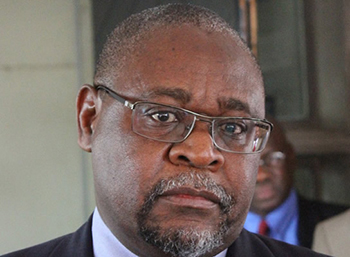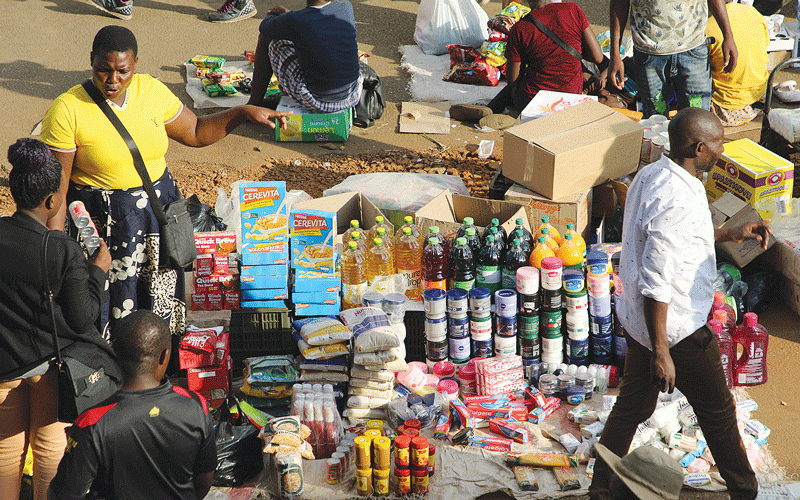
Sadc candidate for the African Development Bank (AfDB) presidency Thomas Zondo Sakala says he would consolidate and refine the current operational strategy, reforms and initiatives to guarantee the bank’s continued relevancy to its clients and delivery of inclusive and sustainable results.
BY NDAMU SANDU
A former AfDB executive, Sakala has to shrug the challenges from Akinwumi Adesina (Nigeria), Sufian Ahmed (Ethiopia), Jaloul Ayed (Tunisia), Kordje Bedoumra (Chad), Cristina Duarte (Cape Verde), Samurai Kamara (Sierra Leone) and Malian Birama Boubacar Sidibe.
Elections for AfDB president would be held on May 28 in Abidjan, Ivory Coast, during the bank’s annual meetings to replace to replace Rwandan Donald Kaberuka who is completing his second and final term at the helm of AfDB in August. In an interview with NewsDay, Sakala said AfDB must be responsive even during situations of fragility, emergency (such as the Ebola outbreak) and conflict “as is currently being witnessed in a number of countries”. “All this work must be carried out in a cost effective manner,” said the Zimbabwean banker. Sakala resigned as Vice-President, Country and Regional Programmes and Policies at AfDB last year to campaign for the top post having worked for the bank since 1983.
Sakala said the bank must stay committed to be the centre of Africa’s transformation and be the respected voice on African economic and social developmental issues.
“This will help reinforce its status as the premier African developmental institution,” he said. If elected, Sakala said the bank would focus on five key areas —closing infrastructure gap, regional integration, fragility and conflicts, private sector development and gender and equality.
It is estimated that Africa requires over $50 billion annually to plug the infrastructure gap.
Sakala said infrastructure should remain the top priority for the foreseeable future with special attention being devoted to the challenges of rapid urbanisation, promoting intra-African trade and the transformation of rural economies.
- Chamisa under fire over US$120K donation
- Mavhunga puts DeMbare into Chibuku quarterfinals
- Pension funds bet on Cabora Bassa oilfields
- Councils defy govt fire tender directive
Keep Reading
Sakala calls for “greater mobilisation of Africa’s own resources to, among other demands, ensure that priority national and regional projects such as those in PIDA [Programme for Infrastructure Development in Africa] are brought to bankability in a timely and coordinated manner”.
Under Sakala’s presidency, AfDB would promote regional integration warning that there were formidable political and historical forces to contend with.
“The bank, as a trusted honest broker, should help deepen dialogue and trust among countries, reinforce political commitment as well as strengthen regional institutions. To this end, the bank would need to develop new competences and deepen knowledge of the operating environment in order to deliver on this agenda,” he said.
On fragility and conflicts, Sakala said there can be no blanket strategy or set of responses adding that any meaningful strategy of the bank to tackle the challenge “must address the diverse challenges that affected communities and countries face as they strive to prevent, manage and transit out of conflict to sustainable development”.
“. . . I would maintain a push for increased understanding of what drives the identified fragile and conflict situations through sensitive engagement with key players, strengthening and supporting the building of effective institutions, championing equality before the law, and promoting the opening of political and economic space to foster a greater sense of inclusion among different population groups,” he said.
Sakala said AfDB “must deepen the collaboration with the African Union, which is increasingly taking the lead in resolution of conflicts in Africa”.
Sakala said despite the bank’s efforts to ensure gender equality, results were thin on the ground. As a remedy, Sakala said, there was need to go beyond the checklist of desired achievements and targets. He said there was need to understand what drives gender prejudices, exclusion and violence in different communities.
The veteran banker said AfDB should be a leader and always looking for effective and different ways to foster growth of the private sector, “while continuing to be efficient and to crowd-in rather than crowd-out entities participating in the sector”.
“The private sector should remain the engine of growth and must be catalysed, taking into account the challenges for improved corporate governance, gender equality, climate change among other factors,” he said.










